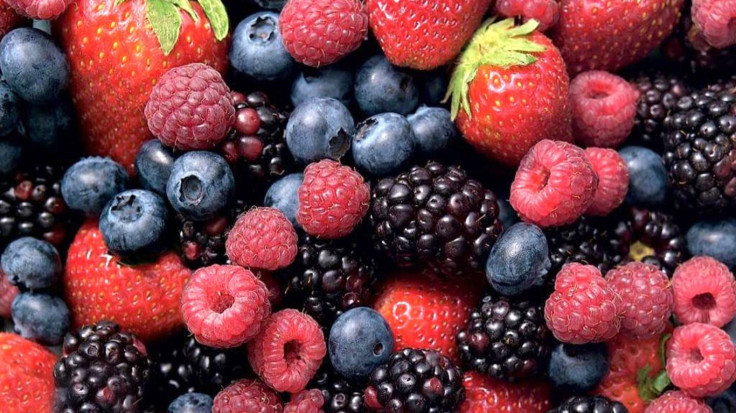Berries May Improve Cognitive Functions, Research Ongoing

Researchers from the Human Nutrition Research Center on Aging at Tufts University and University of Maryland Baltimore County are studying the protective effects of berries on brain function, particularly their ability to help the brain clear toxic accumulation.
In a recent experiment, researchers fed rats a berry diet for two months, divided them into two groups, and irradiated them as a way to replicate accelerated aging: one group was evaluated after 36 hours of radiation and the other after 30 days.
Researchers found the rats experienced significant protection against radiation (compared to control). They speculate this result is due to the phytonutrients present in berries. Researchers also investigated other neurochemical changes in the brain, including autophagy, a catabolic mechanism by which the brain regulates the synthesis, degradation and recycling of cellular components and by which it clears toxic accumulations.
"Berries seem to promote autophagy, the brain's natural housekeeping mechanism, thereby reducing the toxic accumulation," said investigator Shibu Poulose, PhD. "Most diseases of the brain such as Alzheimer's and Parkinson's have shown an increased amount of toxic protein."
Having shown impressive results in animal experiments, researchers are currently conducting a human study in people ages 60-75. "We have a lot of animal work that suggests these compounds will protect the aged brain and reverse some of behavioral deficits. We are hoping it will translate to human studies as well," said Dr. Barbara Shukitt-Hale, the lead investigator conducting the human study, funded by the USDA and a grant from NASA.
The protective effect of berries against inflammation has been documented in many studies. Research suggests that ellagic acid, found in all berries though in strawberries and raspberries in particular, has shown the ability to prevent cancers of the skin, bladder, lung, esophagus and breast. This phytonutrient seems to utilize several different cancer-fighting methods at once: it acts as an antioxidant, it helps the body deactivate specific carcinogens and it helps slow the reproduction of cancer cells.
Unlike traditional nutrients (protein, fat, vitamins, minerals), phytonutrients, specific organic components of plants, are not essential for life yet they are believed to promote human health.
Strawberries also contain flavonoids, each of which seems to employ a similar array of anti-cancer strategies. Blueberries also contain a chemical element known as anthocyanosides, which many scientists believe rank among the most potent antioxidants yet discovered.



























